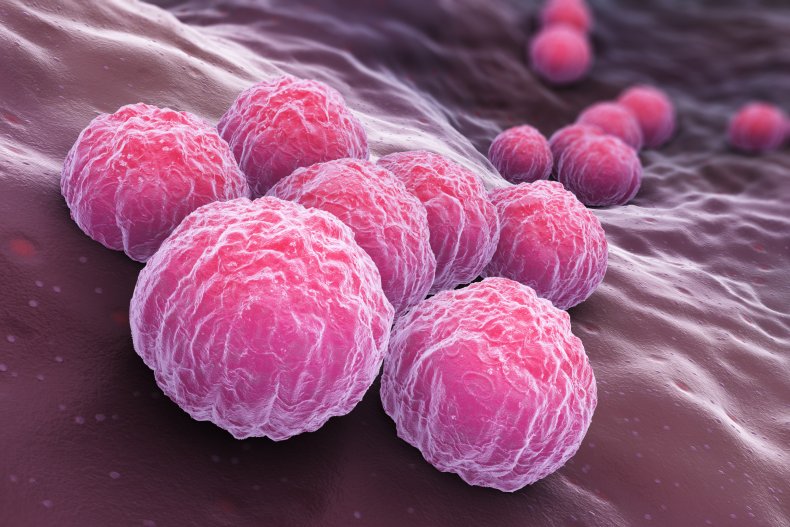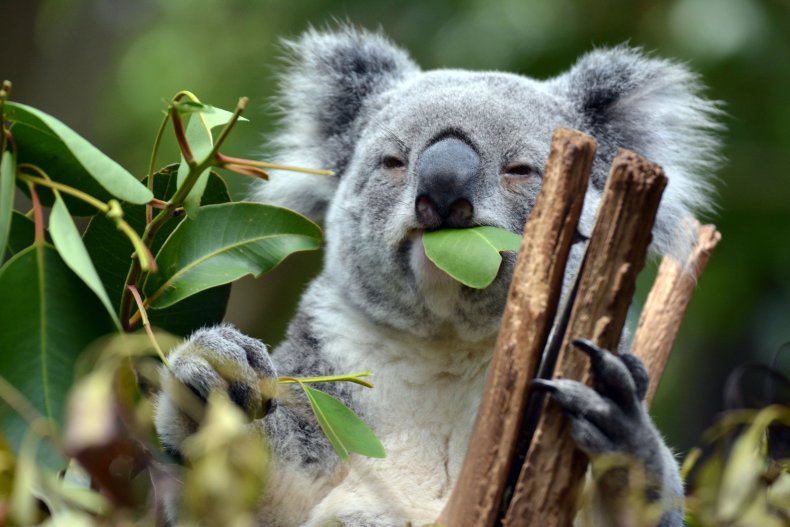Australia’s koalas are being threatened by the out-of-control spread of chlamydia, with many of them suffering severe illnesses or dying early as a result, which has spurred scientists to develop a vaccine that’s currently being trialed.
The sexually transmitted infection often sickens the marsupials to such a degree that they can become blind and infertile, and it is sometimes fatal. The disease, caused by bacteria called Chlamydia pneumoniae and Chlamydia pecorum, which are different from the human-infecting Chlamydia trachomatis, can also lead to large cysts growing in the ovaries of females, impacting koala birth rates.
While in humans, chlamydia is treated with antibiotics, this isn’t an option for koalas due to their powerful stomach enzymes, which are essential for digesting their eucalyptus-based diet.
ISTOCK / GETTY IMAGES PLUS
Chlamydia in koalas, also known as “wet-bottom syndrome,” is a contagious and deadly form of bacterial infection, and it now affects an estimated 80 percent of the species, according to AP News.
That’s a massive jump from the 10 percent infected in 2008, which is thought to have been triggered by a large number of koalas also having contracted a virus that suppressed their immune systems, making them more vulnerable to infections from other pathogens like chlamydia, according to research published in the Journal of Virology in 2018.
“It’s killing koalas because they become so sick they can’t climb trees to get food, or escape predators, and females can become infertile,” said Samuel Phillips, a microbiologist at the University of the Sunshine Coast, told AP News.

ISTOCK / GETTY IMAGES PLUS
“It’s been devastating — there’s very, very low fertility,” Mathew Crowther, a conservation biologist at the University of Sydney who monitors koala populations, told AP News. “You hardly see any babies.”
Chlamydia is spread by sexual transmission, as well as from mother to child during pregnancy and birth, as it is with humans. Koalas are now listed as endangered across New South Wales, Queensland and the Australian Capital Territory, with their populations seeing steep declines in the past two decades.
Luckily for the marsupials, scientists have begun working on a vaccine for the disease. The vaccine was first completed in 2020, and in the years since, scientists have been slowly testing it, with them now embarking on the vaccine’s first field trial.

ISTOCK / GETTY IMAGES PLUS
Scientists are currently attempting to vaccinate about 50 koalas in the Northern Rivers region of New South Wales to see the impact the vaccine could have on a wild population.
“We want to evaluate what percentage of the koalas we need to vaccinate to meaningfully reduce infection and disease,” said Phillips.
“Vaccination for wildlife is certainly not routine yet,” Jacob Negrey, a biologist at Wake Forest University School of Medicine, told AP News. “But whether it should be used more often is a fundamental question that conservation biologists are really wrangling with right now.”
Other animals that have been vaccinated include Hawaiian monk seals, which were vaccinated against a dangerous morbillivirus strain in 2016, and golden lion tamarin monkeys, which began being vaccinated against yellow fever starting in 2021.
“Vaccination is an incredibly resource-intensive thing to do. Koalas live high up in trees,” Rebecca Johnson, chief scientist at the Smithsonian National Museum of Natural History in Washington, D.C., and previous leader of the Koala Genome Consortium in Australia, told AP News. “But because the effects of chlamydia are so debilitating, I think it’s totally worth it.”
Do you have a tip on a science story that Newsweek should be covering? Do you have a question about koalas? Let us know via [email protected].


